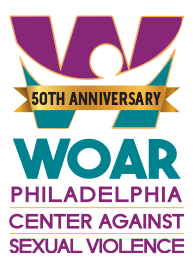Unfortunately, people in LGBTQ+ community are at a higher risk of experiencing all violence including sexual violence. Below are some possible impacts sexual violence could have on someone within the community.
Trouble to Identify Sexual Abuse and/or Feeling Invisible:
Most public information about sexual violence focuses on the white, cis, and straight victim/survivor experience. As a result, LGBTQ+ sexual violence experiences may not align with what they have been told sexual violence looks like. This may cause some folks to have trouble self- identifying a label for their experience, and/or this may lead to feelings of confusion or invisibility.
Possible Feelings of Humiliation and Self-Blame:
Most survivors of sexual violence experience feelings of shame, guilt, self-blame and vulnerability, regardless of their sexual identity. LGBTQ-identified survivors may feel like they didn’t defend themselves enough or should have done something differently, especially an individual who identifies with features of masculinity (some trans, bisexual, gay and straight men) who may feel that their gender was challenged or threatened by the assault.
Internalized and Externalized Homophobia, Biphobia or Transphobia:
LGBTQ survivors may internalize some myths or stereotypes as a result of the sexual assault, like the belief that “I am damaged” or “I deserved it”. As a result, LGBTQ survivors may not disclose the assault to family or friends or report the assault to the police or therapists for fear of negative reactions (being blamed or not believed).
Loss of Trust in Others:
Survivors of sexual violence may feel like their world changed, especially if their perpetrator was also an LGBTQ-identified individual. In this case, the community that gave them a safe haven and serenity, especially from homo/bi/transphobia, can also be violent and unsafe.
Isolation:
LGBTQ survivors may fear judgment from friends, family, community and/or professionals as a result of their experiences of homo/bi/transphobia. They may have already encountered myths or stereotypes about sexual violence among LGBTQ-identified individuals from mental health or legal professionals.





